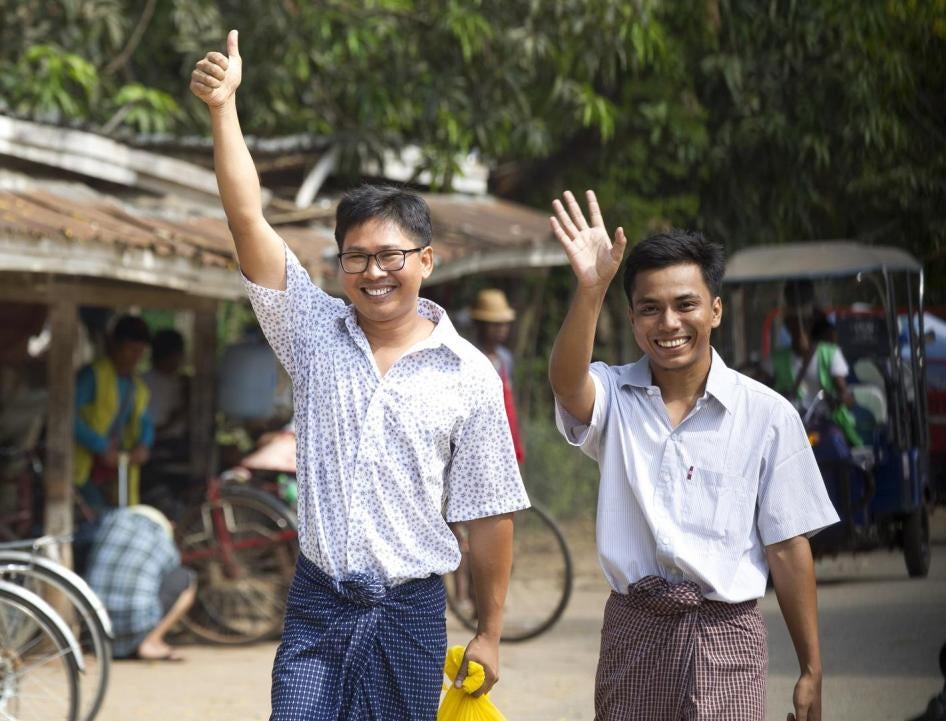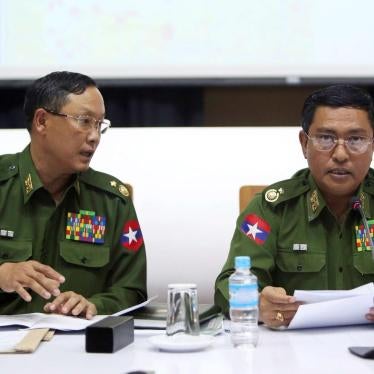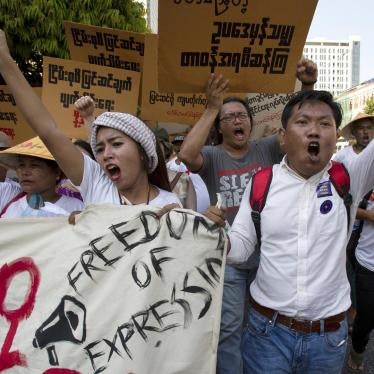The release of Reuters journalists Wa Lone and Kyaw Soe Oo from a Myanmar prison is a joyous occasion for their families and all of those who have advocated for their release. But it should not blind anyone to the government’s ongoing repression of the media in Myanmar.
Just two days earlier, the police summoned two journalists from the Development Media Group (DMG), based in Sittwe in Rakhine State, for questioning. A complaint filed by the intelligence branch of the Home Ministry against the group’s editor, Min Oo, alleges that he “promoted or assisted” an unlawful association through DMG’s news articles – an offense under the vaguely worded Unlawful Associations Act that is punishable by up to five years in prison.
While the basis of the complaint has not been disclosed, DMG has reported extensively on the ongoing fighting in Rakhine State between the Arakan Army, an ethnic armed group, and the Myanmar military.
Additionally, on April 12, Myanmar’s military sued the editor of the Burmese edition of The Irrawaddy, Ye Ni, for criminal defamation, claiming that the news outlet’s reporting on recent clashes in Rakhine State was “unfair” and defamed the army.
These are just the latest examples of the use of criminal laws against journalists, with at least 47 reporters facing charges since the government led by Aung San Suu Kyi’s National League for Democracy took power.
It seems likely that more cases will follow. At a news conference last week, the secretary of the military’s True News Information Team said the military had “lost patience” with the media, and that it was choosing to use criminal laws rather than Myanmar’s News Media Law because penalties under the latter were “not harsh enough.”
Newly released Wa Lone and Kyaw Soe Oo received a Pulitzer Prize for their coverage of a massacre by Myanmar’s military. But they have lost more than 500 days of their lives in prison, time they will never get back. Myanmar’s friends and donors abroad should do all they can to press the government and military to drop all charges against journalists for doing their jobs and release those imprisoned. Until laws such as those used against the Reuters reporters and dozens of other journalists are amended or repealed, Myanmar’s media will remain under threat.









